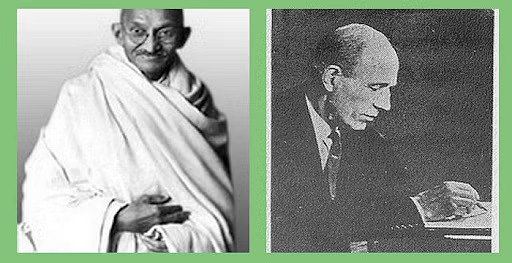Gandhi-Irwin Pact: A Turning Point in India's Struggle for Independence
History Indian HistoryPosted by NewAdmin on 2025-02-10 09:02:52 |
Share: Facebook | Twitter | Whatsapp | Linkedin Visits: 96

The Gandhi-Irwin Pact, signed on March 5, 1931, was a significant agreement between Mahatma Gandhi and Lord Irwin, the then Viceroy of India. The pact marked the end of the Civil Disobedience Movement that had begun in 1930, after the Dandi March led by Gandhi, and was seen as a breakthrough in the strained relationship between the Indian National Congress and the British government. The agreement was the result of several rounds of negotiations and demonstrated the willingness of both sides to seek a peaceful resolution to the growing unrest in India.
The primary issue that led to the pact was the British government's harsh response to the Civil Disobedience Movement, which involved the illegal production and sale of salt, as well as other acts of non-cooperation. The movement had gained mass support across India, and the British authorities had arrested thousands of protesters, including prominent Congress leaders. Gandhi, in particular, had been arrested, which led to widespread protests and demonstrations across the country. The British government, faced with mounting pressure, decided to initiate talks with the Congress leadership to bring an end to the unrest.
Under the terms of the Gandhi-Irwin Pact, the British government agreed to several key concessions. First, it promised to release all political prisoners who had been arrested for participation in the Civil Disobedience Movement, with the exception of those who were involved in violence. Second, it agreed to allow the production and sale of salt for personal use in coastal areas, which had been one of the central issues of the movement. Third, the British government also promised to remove the ban on the Indian National Congress, which had been a significant restriction on the party’s activities.
In return, Gandhi agreed to suspend the Civil Disobedience Movement and participate in the Second Round Table Conference in London, representing the Indian National Congress. Although the pact did not lead to immediate independence for India, it was an important diplomatic victory for Gandhi and the Congress. The agreement demonstrated the effectiveness of non-violent resistance and set the stage for further negotiations between India and the British government. However, the pact also led to criticism from some quarters, including from the left-wing faction within the Congress, which felt that Gandhi had compromised too much with the British. Despite this, the Gandhi-Irwin Pact remains a key event in India’s struggle for independence, symbolizing the potential for negotiation in the fight for self-rule.
Search
Categories
Recent News
- Indian Shooting Triumphs: Rana's Bronze and Team Silver
- Andhra Pradesh MLA's Unique Scooter Inspection Tour
- Air India's Fuel Switch Woes: A Troubling Pattern
- Mamata Banerjee's Supreme Court Showdown: A Battle for Democracy
- AP EAPCET 2026: Unlocking Andhra Pradesh's Engineering Aspirations
- Fatal Leap: Man's Tragic Encounter with Overhead Wires
- CCTV Catches the Uncatchable: Brazen Burglary Attempt in Uttar Pradesh
- Army's Precision Strike: Top Terrorists Neutralized in J&K
Popular News
- Navigating IPO Market Dynamics Amid Volatility and Regulatory Changes
- Massive Worldwide Microsoft Outage Disrupts Multiple Sectors
- Panjapur Bus Stand to Reshape TNSTC Routes
- తెలుగుదేశం పార్టీ - పేదరికాన్ని నిర్మూలించడంలో వాగ్దానం
- Universities Embrace Remote Learning Technologies Amidst Ongoing Pandemic